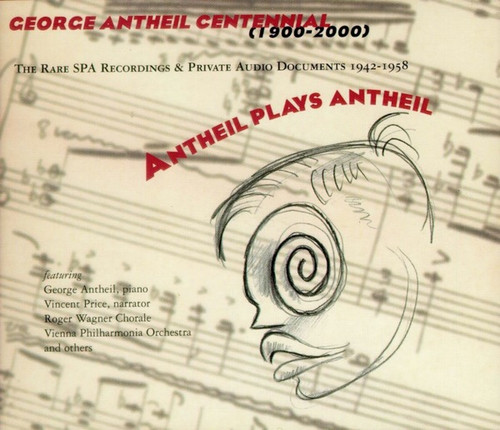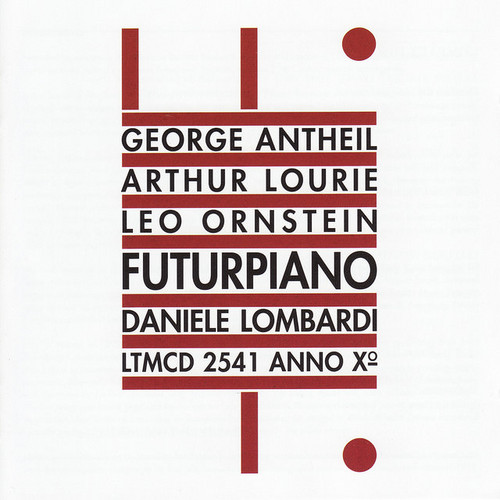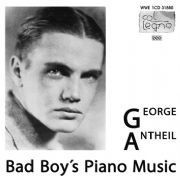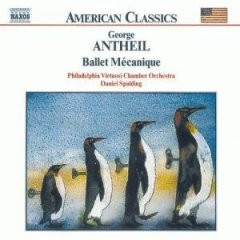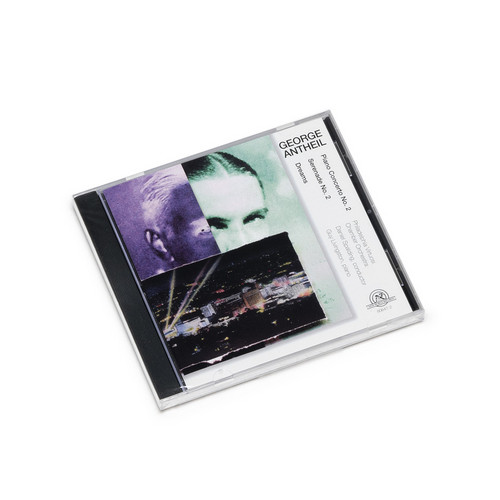George Antheil
George Antheil (1900-1959) was an American composer. Antheil wrote over 300 musical works in all major genres, including symphonies, chamber works, film music, and operas. He was extremely outspoken and articulate, and wrote numerous articles, as well as an autobiography, Bad Boy of Music, which is still in print. As a young composer, he considered himself to be quite the revolutionary, and his music, especially in his early career, employed many unusual sound sources and combinations of instruments. In many ways, both musical and technical, he was far ahead of his time. His concerts routinely caused riots all over Europe, which at the time was considered a sign of genius. At the end of his career he settled in Hollywood, where he enjoyed a reasonably successful career as a composer for film and television.
George Antheil (1900-1959) was an American composer. Antheil wrote over 300 musical works in all major genres, including symphonies, chamber works, film music, and operas. He was extremely outspoken and articulate, and wrote numerous articles, as well as an autobiography, Bad Boy of Music, which is still in print. As a young composer, he considered himself to be quite the revolutionary, and his music, especially in his early career, employed many unusual sound sources and combinations of instruments. In many ways, both musical and technical, he was far ahead of his time. His concerts routinely caused riots all over Europe, which at the time was considered a sign of genius. At the end of his career he settled in Hollywood, where he enjoyed a reasonably successful career as a composer for film and television.
Antheil Plays Antheil: The Rare SPA Recordings and Private Audio Documents 1942-1958
The rare SPA recordings and private audio documents, 1943-1958. Composer George Antheil (1900-1959) is most remembered for his mechanistic piano music hailed by 1920s Paris, but by 1948, when he’d become the third most-played American-born composer of orchestral music, his style reflected a more emotional, more mature personality. This centennial collection highlights selections from Antheil’s later “neo-romantic” period and includes the only recordings of Antheil himself at the piano. A 60-page…
Futurpiano
Futurpiano showcases three influential avant-garde composers associated with the Futurist movement, by way of piano music composed between 1913 and 1933.
Arthur-Vincent Lourie was the first Russian Futurist musician, and a signatory of the original St Petersburg Manifesto in 1914. The five Syntheses written that same year offer a form of dodecaphony, while Formes en l'air from 1915 is a Cubo-Futurist conception using an innovative form of notation, dedicated to Pablo Picasso.
Born in the Ukraine…
Bad Boy\'s Piano Music
George Antheil was not only always ahead of his time; he was also an alert contemporary and ready to take in all artistic trends of the first half of the 20th century. There was hardly a kind of music he wasn't aware of, hardly a madness he didn't take part in, and hardly a scandal he missed, or missed to cause. All his personal entanglements are certainly reflected in his compositions – and we wouldn't expect any less from him; but his continuing reputation as a genuinely unique character is ne…
Ballet mecanique
Ballet Mécanique (1924) was a project by the American composer George Antheil and the filmaker/artist Fernand Léger. Although the film was intended to use Antheil's score as a soundtrack, the two parts were not brought together until the 1990s. As a composition, Ballet Mécanique is Antheil's best known and most enduring work. It remains famous for its radical style and instrumentation as well as its storied history. In concert performance, the "ballet" is not a show of human dancers but of mecha…
George Antheil: Piano Concerto No. 2
The Piano Concerto No. 2 is an experiment in classical form. The work contains the same sudden juxtapositions and abrupt contrasts of mood as his futurist music. But the excesses of his recent Ballet mécanique are compensated for by an almost spare, baroque orchestration and motifs that draw on Bach as much as on Stravinsky. In three movements, George Antheil employs a more restrained but still exuberant style. The beautifully meditative slow movement is followed by a virtuosic and compelling to…
